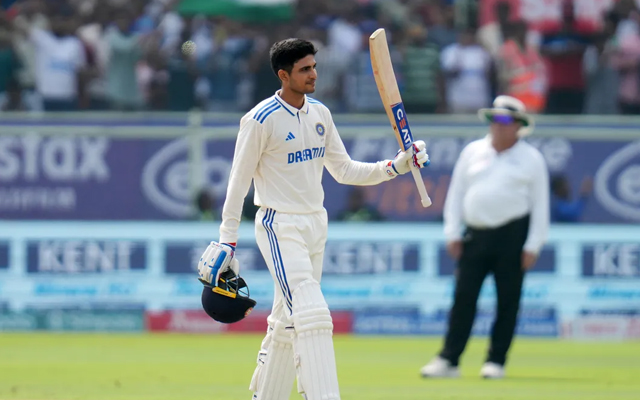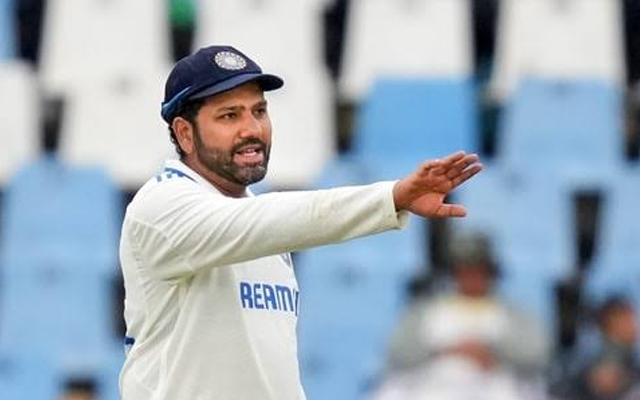England's Bazball Mind Games: A Psychological Triumph Despite Vizag Test Loss
England lost the second Test by 106 runs. Despite that, however, they have shown enough to give sleepless nights to India.
4 Min Read


India's recent Test encounters with England have been nothing short of a rollercoaster. Marked by a shocking defeat in Hyderabad but a resounding comeback in Visakhapatnam It had everything for fans. However, beneath the surface of statistics and scores lies a fascinating psychological battle that England seem to be winning despite the 106-run defeat in the second Test.
Jasprit Bumrah's stellar bowling performances and Team India's impressive batting displays, particularly Yashasvi Jaiswal's maiden double-century and Shubman Gill's timely ton, showcased India's cricketing prowess. It helped India register one of the best victories against the Three Lions in the last few years. However, the aggressive approach of visitors has troubled the hosts.

The introduction of Bazball, an aggressive Test match approach, was pioneered by England's dynamic duo, Ben Stokes and Coach Brendon McCullum. It has proven to be a thorn in India's side in the ongoing series. England's consistent scoring above a rate of four runs per over in every session has forced India into a cautious mindset.
It was evident during India’s 2nd inning batting, which was observed by England pacer James Anderson and former skipper Alastair Cook. Despite a commanding lead in the second Test, India's cautious batting approach, highlighted by Alastair Cook and a BBC cricket correspondent, indicates a psychological impact of Bazball. The fear of losing control and succumbing to England's aggressive style forced India to play defensively even when in a dominant position.
Cook said, “You’re almost seeing a little bit of the fear of Bazball. They’re 400 runs ahead, but in the last half hour, they’ve had Ashwin blocking it almost as if every run were so important. And you think if it were against any other side, side’s I’ve led before and all that, this Indian side would be trying to crash this ball around the park with the tail and get bowling."

It might be safe to say that the 106-run defeat might seem decisive on paper, but the fear instilled by England's Bazball strategy has left a lasting impression on India. Various England cricketers have attributed that the opposition fears England, a sentiment evident in India's defensive approach too. It is also a talking point in Indian media and among fans. One can understand its impact on India’s defensive approach when India opened the field for lower-order batters.
What’s ahead for India?
India faces uphill challenges with the absence of key spinner Ravindra Jadeja and inconsistent performances from Ravichandran Ashwin. The team's reliance on individual brilliance, as seen in Jaiswal and Gill's heroics, highlights a lack of batting consistency too.
With Virat Kohli on a break and an inexperienced middle order, India's team management needs to reassess its strategy. The week-long break provides an opportunity to address vulnerabilities against unconventional approaches and instil a more assertive mindset.

Meanwhile, Rohit Sharma's leadership and batting prowess, coupled with Ashwin's bowling expertise, hold the key to India's success. They both need to understand this and make a resilient comeback in upcoming games. Rohit needs to be more assertive in his approach and keep holding on in the middle. On the other hand, Ashwin needs to overcome the milestone barrier—he is one wicket behind—to make a significant contribution to India’s success.
Emphasising team performance over individual brilliance will be crucial in securing victory in the series. While the scorecard may suggest a win for India in the 2nd Test, the psychological impact of England's Bazball approach cannot be ignored. The upcoming matches will test India's ability to overcome fear, adapt strategies, and secure a comprehensive series win. The battle is not just about runs and wickets; it's a fascinating duel of minds on the cricket field.
Also read: Ian Botham credits England's Bazball for reviving Test cricket
Download Our App